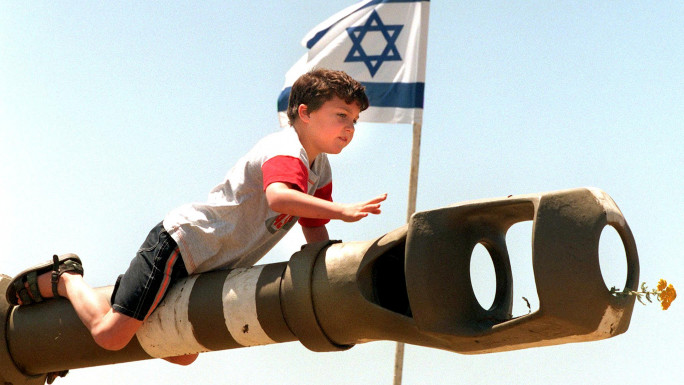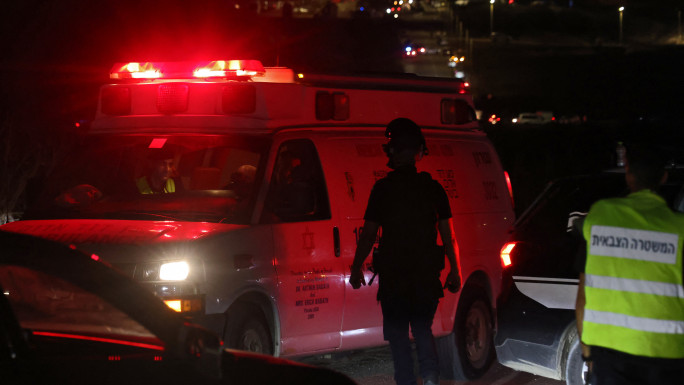
As a wellness podcaster, here's how the Gaza genocide changed me
A little under a year ago, my then-therapist sat in an armchair across from me and listened as I talked through the pain I was experiencing as a witness to Israel's accelerated genocide in Palestine.
While sitting in his warm home office, I reflected on the changes I was experiencing in my internal and external worlds. He suggested that I write about how the genocide affected me.
For me and millions of others, a portal had opened, there was pre-October 7 and post-October 7. There was what I had accepted before and what was unconscionable after. There was the trepidation and cautiousness that I had lived my whole life and now the fever of political activation and public advocacy afterwards — the dam of injustice has finally been breached.
There have been deeper metaphysical changes too. Existential questions about what is "good" and "evil", "right" or "wrong", "fair" or "just" and whether there is even a point in believing them anymore turned me inside out. I found disturbing new layers of thought and felt altered, metamorphosised even.
After seeing humanity so easily discarded, logic quickly followed suit. How are millions of people around the globe expected to watch, listen, and read about a live-streamed genocide and expected to live normally? We are all changed in some way, I am sure of that. Activated or depressed, disillusioned or inspired, how has the Gaza genocide changed you? Here are some of the ways it changed me.
I grew vengeful
I found new, dark depths to emotions that I never thought myself capable of reaching. The intense anger, loss, and despair I have felt over the past few months felt like a sudden shift from my years of self-help, healing, and therapy.
I had recently launched the first season of Third Culture Therapy, a podcast where I discuss with guests how culture, heritage, and history influence our mental health, and yet there I was, overwhelmed by anger.
With every image of deformed faces and the wails of the dying, my fury deepened. And though my darkened mind was not violent, I found myself wishing scorn on anyone who stood in the way of saving Gaza’s children.
I wished them unhappy days. I hoped they never got to celebrate a single thing. I wished them a sad and long life.
I lost myself in that wish.
I found joy in small kindnesses
There came a point during the genocide when it was the happy moments that set me off. The constant exposure to images of blood, and the names of sounds of bombs left me feeling numb. I reached a point where I couldn't even cry.
I felt frozen inside, my face devoid of emotion. I wondered if I would ever be able to feel anything other than deep anger again. But then, I would witness simple acts of love and kindness — a tender kiss between two people, a child hugging their mother, a stranger helping a homeless person, or a small gesture of compassion from a shopkeeper.
These moments would stir my emotions, bringing tears to my eyes. These soft and sweet moments helped thaw my shocked heart.
They acted as a healing balm for the pain, reminding me why we strive to make the world a better place and why we fight to survive.
Each instance of joy liberated me from overwhelming sadness, grounding me in a present that felt worth fighting for. Did it really take such extreme suffering to teach me what wise individuals have been saying for centuries? That living in the present moment, and appreciating the countless small acts of kindness and generosity, is the key to a life with less suffering.
I walked the self-help walk
I have a strong interest in self-care, which is why I decided to produce a podcast about mental health.
Over the years, I have used various methods to improve my mental and emotional well-being. This past year, I felt it was especially important to practice what I preach.
It can feel self-absorbed to focus on self-care during a genocide that I'm not directly involved in, but I realised that taking care of myself was necessary to be able to help others effectively.
If I didn't take the time to heal and replenish myself, I wouldn't be able to be of any use to anyone else. Palestinians aren't going to benefit from my traumatised paralysis. To stay connected to my body and healthily release my anger, I made sure to lift weights every week.
When the trauma became overwhelming and made it hard for me to breathe deeply, I sought help from a breathwork facilitator who helped me process and release my emotions. I also explored other therapies, many of which I have discussed with different healers in Third Culture Therapy.
I understood how religion can heal
I connected with my Islamic faith through practice and prayer, fasting in solidarity, purification and penance — the sound of the Quran soothing my heart.
In May, I travelled to Libya and the trip re-introduced the power of prayer. There's a focus to ritual that helps regulate a shattered nervous system. The efficacy and significance have been so well studied, so whatever way you look at it, there's something there.
I never really believed in Heaven and Hell because I thought God was genuinely too kind and merciful for that. I didn’t think it made sense to make people as they are but then punish them for being as they are. I recognise that is cherry-picking religion, and that’s probably why I used to call myself spiritual rather than religious.
But then Gaza and all the terror and all the tragedy and all the blood, guts, brains and limbs besieged my brain and I desperately needed to believe in Heaven and Hell. Otherwise, where do all the lost innocent souls go? What do all the childless parents hold on to? How do the wrongdoers and those responsible for genocide go unpunished?
Truth be told, I don’t know what intangible forces or places exist in the universe. But I do see the benefit in believing in goodness, karma, and the hereafter, even if it simply gives me the purpose and peace to keep going.
I moved from fearful to fearless
Israel’s unremitting aggression has made me feel both acute fear and intense fearlessness. Sometimes they rose together and oftentimes they competed but I was constantly negotiating my relationship with fear.
Decades after the Nakba, as Israel accelerates its genocide of the Palestinians, Israel’s use of violence to subjugate Arabs has seeped into my bones. My father is a Nakba survivor and the growing study of the intergenerational hereditary nature of trauma suggests I am not hyperbolising either.
Add to this the 21st century’s 'War on Terror' against worldwide Muslims, the explosive Arab Spring movement across the Middle East and the ghastly implosion of my mother country, Syria, and my fear for Arab life is even more understandable.
After learning of the massacre at al-Shifa Hospital, I had a panic attack on my kitchen floor. I kept repeating to myself, as if in a trance, “They’re going to kill us all.” I felt a visceral feeling of dread of what could still follow, and all we’ve seen since has proved that terror true.
It wasn’t only inherited trauma and concerns for lives in Gaza that activated my terrorised feelings. The hateful rhetoric spewed by some prominent British politicians against Palestinians and the labelling of their sympathisers as "radical" made me feel unprotected and unequal as a British citizen of Arab descent.
Nowhere felt safe, except, perhaps ironically, among the throngs of protestors each week. Being cornered had the corollary effect of flipping my fear into a fearlessness that felt critically life-saving.
There was nothing more to lose, or so it felt. There was nothing more to do than grab onto that fear like a bronco on a ferocious buck and ride. The Palestinians under the rubble and in prisons needed us to. As many Palestinian activists have said over these past terrorising months, we cannot afford to despair now, the people in Gaza are counting on us, Palestine is counting on us, Lebanon is counting on us, and the world is counting on us.
My boundaries sharpened and I became uncompromising
I now expect and demand a lot more and a lot better. Politicians, friends, colleagues, editors, writers, everyone must do a lot better than the pathetic mediocrity they have so far been allowed to get away with and if they aren’t trying then I am not buying it anymore.
Perhaps that comes with age, self-love, and healing. Perhaps it comes from having reached fear’s tipping point. There is only so much abuse any person, place or person can take before they go from weak and desperate to raging bull.
Just ask the victim of domestic abuse who eventually pushes back. Or mother nature who after centuries of lovingly holding us in her arms is now exorcizing our pollutive excesses with successive catastrophes.
I understood why people have children
They give you hope. Otherwise, you wouldn’t want to wake up in the morning. The love for them is the reason you try to make anything better, otherwise, it is very easy to despair and give up.
Watching my young nephews learn about Palestine and the genocide in Gaza and the care they exhibited towards other people less fortunate than them gave me hope for a generation that could make things better.
Their love for us restores our self-belief and responsibility to one another. Their affection and innocent exuberance for the world is what makes us try to save it.
I found my voice and used it
Becoming a writer has always felt like a work in progress. A childhood ambition of mine, I had been negotiating with the wholehearted pursuit of being a writer for years.
As a closet poet, as a journalist, as a media specialist. But putting my thoughts, voice and style to pieces I was proud (and a little scared) to put out in public was something I was still standing on the sidelines of in September 2024.
But in October, Palestine needed all the voices it could get and I found mine and used it. I suppose this is what purpose is about, to push you to pursue that which you’d be too self-conscious and afraid to do otherwise.
Palestine gave me that, she kicked the doubt out of me and spurred me to use my words for the greater good, like I always said I wanted to do. I wrote, I performed, I spoke, I chanted. I found my voice, and I used it.
In the face of genocide, I made friends with my ‘enemies’
Western political and media narratives on Israel/Palestine would have you believe that it is a religious war, a kind of bloody race to reach God’s gates first, instead of what it actually is: genocide.
And while I have always understood the foundational neo-imperialist objectives of Israel’s creation and the dispossession and fracturing of Arab people, I guess I too fell under the mistaken assumption that all Jews would hate me and that I could never see eye to eye with an Israeli.
So, finding compassion, understanding, friendship and solidarity among Jews and Israelis during this past year has been heart-opening and mind-expanding and offered me a real alternative to the divisive hatred that hegemonic powers insist on perpetuating.
I understood the power of community
We live in increasingly hyper-individualistic societies that elevate our personal needs and wants above the collective.
This singular focus on self permeates every sphere of life and insists on the ‘I’ subjugating the ‘we’, yet it is the collective that so many of us have turned to in these dark days.
There is a reason my spirit soars when I hear the chant, “The people united will never be defeated” because that is the energy of the collective feathering my wings. In the past year, the ‘we’ has become central to our survival, recovery and our progress. None of us can push against the forces trying to break us alone.
There are necessary times for solitude, and for squirreling away alone, but in the face of such overwhelming malevolent power, we need constant reinforcements and a loyal tribe to hold us up. Otherwise, it will be loneliness and despair that kill us before the bombs ever reach us.
Layla Maghribi is a British Arab writer and podcaster. She is the host of Third Culture Therapy, a podcast that explores mental well-being from a cultural perspective, and is writing her first nonfiction book.
Follow her on X: @layla_maghribi
Have questions or comments? Email us at: editorial-english@newarab.com
Opinions expressed in this article remain those of the author and do not necessarily represent those of The New Arab, its editorial board or staff.
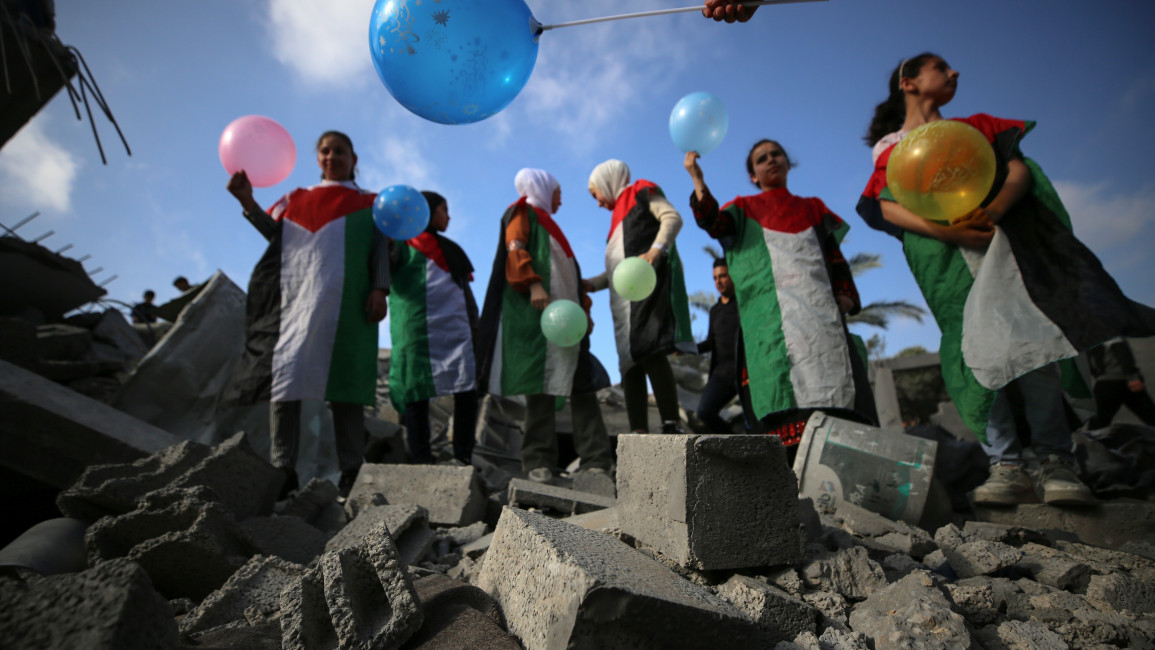


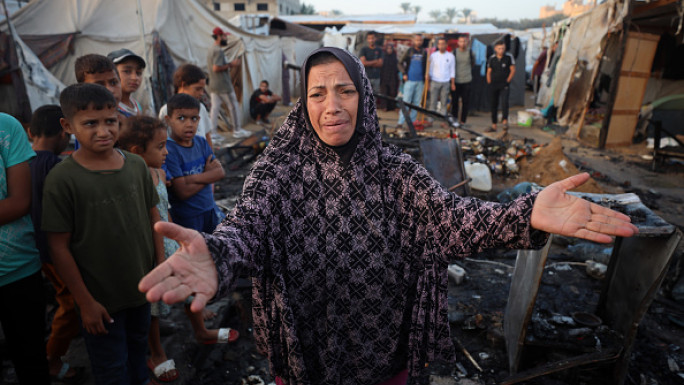
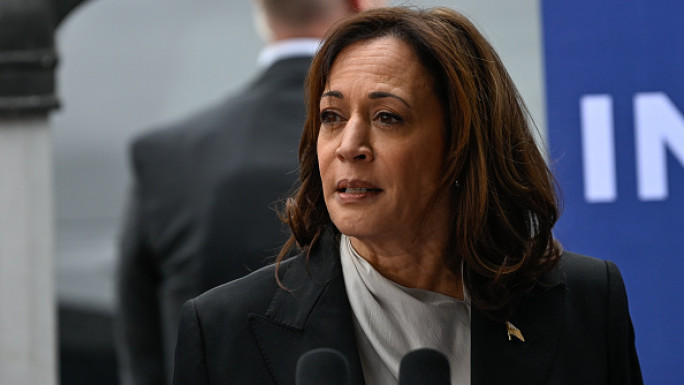
![The leader of planned Albanian Muslim mini-state expresses support for Israel [Getty]](/sites/default/files/styles/image_684x385/public/2171709386.jpeg?h=0e714722&itok=RErwaBrE)
